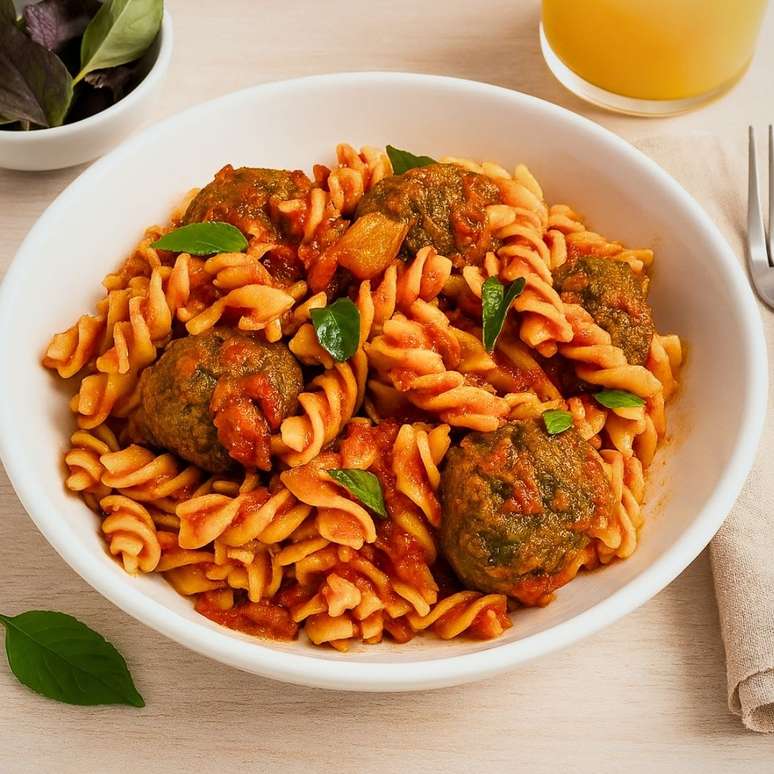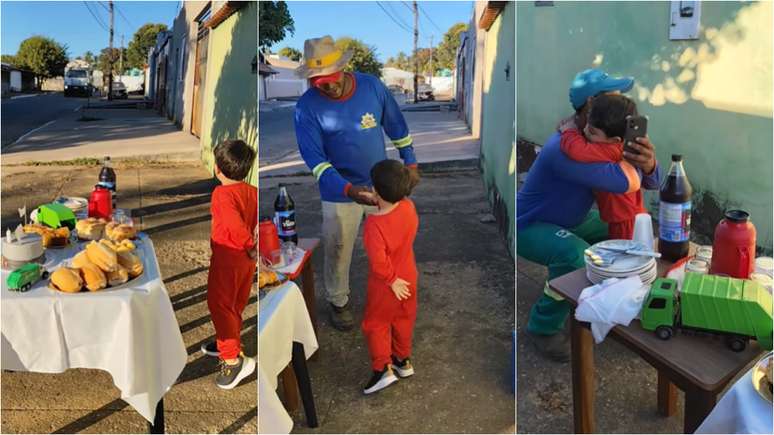Mindfulness specialist Luiza Bittencourt dedicates her column this week to Women’s Month and teaches them self-compassion techniques
March is considered the month of women, extraordinary beings, strong, active, kind, compassionate, but not always compassionate. Many women overload themselves, try to do millions of things at the same time – which leaves them exhausted -, criticize themselves exaggeratedly every time they look in the mirror, take care of everything, home, work, family, friends, and some are last on the priority list for the day.
html[data-range=”xlarge”] figure image img.img-ac2fda5edb72121b8eb2f59b0b300f94lxukjt7e { width: 774px; height: 435px; }HTML[data-range=”large”] figure image img.img-ac2fda5edb72121b8eb2f59b0b300f94lxukjt7e { width: 548px; height: 308px; }HTML[data-range=”small”] figure image img.img-ac2fda5edb72121b8eb2f59b0b300f94lxukjt7e, html[data-range=”medium”] figure image img.img-ac2fda5edb72121b8eb2f59b0b300f94lxukjt7e { width: 564px; height: 317px; }
Let’s reflect on one thing: do you, a woman, take care of others more than yourself? Do you treat others with kindness and patience, but when it comes to you, is it just in the “whip”? How do you treat yourself on a daily basis? We often have a toxic relationship with ourselves. We are often our own worst enemy.
have you ever thought about it?
Let’s imagine a situation: your friend calls you super upset about a work or relationship problem. She is crying, devastated. And then you sigh, roll your eyes and say: “Well, it must be your fault, right? You’re not doing any good, you’re not good enough for him or for this job. I don’t think you deserved it anyway. Besides, you’re a bit overweight, aren’t you? You’re boring, he he’s in a bad mood. No one can handle it.”
Just the thought of talking like that to someone you like, or even a stranger, makes us tense! But it’s different with us, right? We constantly have this kind of internal dialogue.
Self-compassion is about treating yourself the way you treat the people you love and care about. It’s about taking care of yourself and also being alone for a while.
Look at this photo on Instagram
A post shared by Meditação, Mindfulness & Mindful Eating (@mindful.luizabittencourt)
Men too, but even more so women. We want to be multitasking heroes. Many women say it proudly, but it’s just too taxing and saps our energy and mental health. We overload ourselves, we seek perfection (which doesn’t exist), we don’t give ourselves a break. We have to take care of the house, take care of the kids, exercise, look after, be super productive at work and more.
On the day’s priority list, we usually come last. “If I have time, I pay attention to myself”, but usually does not stay. And if there is anything left, she is already exhausted and wants to sleep.
But always remember the aircraft oxygen mask. When it falls, who should we put first? Yes, in yourself. So help others. And not vice versa! In life, we do it wrong. We deal first and stay last. If you don’t put on your oxygen mask, you won’t be able to help others, you won’t be able to handle all tasks and responsibilities. At some point, you will crash.
Mindfulness and self-compassion
Self-compassion is a very beautiful thing that comes from our daily mindfulness practice. You understand that taking care of yourself is not a waste of time, you don’t feel guilty about it, you learn to treat yourself better, with more love and affection, and to value yourself more, to congratulate yourself, because you are doing it, yes. Suddenly not living up to your expectations, but that’s okay.
Expectations are expectations, set them aside. They just make us suffer. You did your best, with what was possible. Instead of criticizing yourself that you should have done more, give yourself a pat on the back and congratulate yourself. It doesn’t cover much of your body, but it also does its best, this perfectly imperfect awesome machine that does so much for you every day. Instead of just criticizing your body, be grateful for everything it allows you to do, for your health, for being here alive in this moment.
Self-compassion has 3 elements:
Kindness to yourself: when you make mistakes, do you welcome yourself or do you just blame yourself? Self-kindness combats this tendency of ours. You can support and encourage each other more.
Shared humanity: recognize that all human beings fail, we are all perfectly imperfect, we all go through hard times and suffering. This interconnectivity unites us and makes us understand that we are not alone in this.
Awareness: it means being aware of your experiences, moment to moment, in a balanced and clear way. It is important to be aware of how we feel and also of our suffering. Learn to deal with pain to respond with love and kindness.
Many people don’t even realize that they are suffering, that this suffering comes from self-criticism, for example. And many times we increase our suffering, we exaggerate. For example: instead of “I’m going through a difficult time”let’s talk “my life is very difficult, my life is horrible”.
Mindfulness helps to let go of the tendency to avoid painful thoughts or emotions, learning to accept the present moment as it is. Only in this way will we be able to deal with it in the best possible way. To be compassionate, awareness is the first step.
What isn’t self-compassion? It’s not self-pity, it’s not synonymous with weakness, it’s not being selfish, it’s not always “passing” one’s head, it’s not having any self-criticism, it’s not synonymous with self-esteem. Self-compassion remains when self-esteem leaves you.
What are the benefits?
Less anxiety, stress, shame and sadness. More happiness, life satisfaction, physical health and self-confidence And you know the best? Self-compassion can be trained! And you can get really good at it. My advice is the self-compassion journal.
How to play the self-compassion journal?
For at least a week, write a self-compassion journal. Journaling is a very effective way to express your emotions and has been shown to increase physical and mental well-being. In the evening, review your day. Write down if you felt bad about something, suddenly a moment where you criticized yourself, or any moment that caused you pain or discomfort. Example: He was rude to someone and later regretted it. For each challenging event of the day, experience mindfulness, a sense of shared humanity, and kindness to yourself.
AWARENESS: Bring awareness to painful emotions. Write about how you felt. Sad? Embarrassed? Frustrated? Anxious? Try to be receptive and non-critical of your experience, without minimizing the issue or exaggerating it, creating drama.
SHARED HUMANITY: Write how your experience is part of the human condition. It is important to remember that to be human means to be imperfect. We all overreact at times, unintentionally hurt someone, and have painful experiences. Everyone. This is how people who are going through what you are going through probably feel.
KINDNESS FOR OURSELVES: Write kind and welcoming words to yourself, as if you were writing to someone you care deeply about. Praise yourself, congratulate yourself on small victories.
At the end of the week, did you notice any changes in the way you treat yourself, in your self-talk? What was it like talking to yourself compassionately? Did it help you deal with the challenges that came your way? Will we start investing in the most important relationship of our lives?
Happy Women’s Day (which is every day!), Happy month, good life to you, with more lightness and self-love!
Source: Terra
Ben Stock is a lifestyle journalist and author at Gossipify. He writes about topics such as health, wellness, travel, food and home decor. He provides practical advice and inspiration to improve well-being, keeps readers up to date with latest lifestyle news and trends, known for his engaging writing style, in-depth analysis and unique perspectives.









